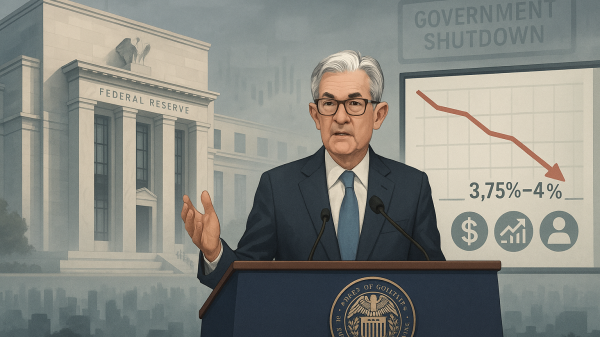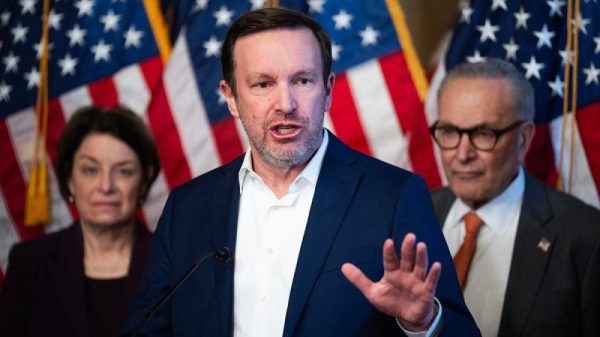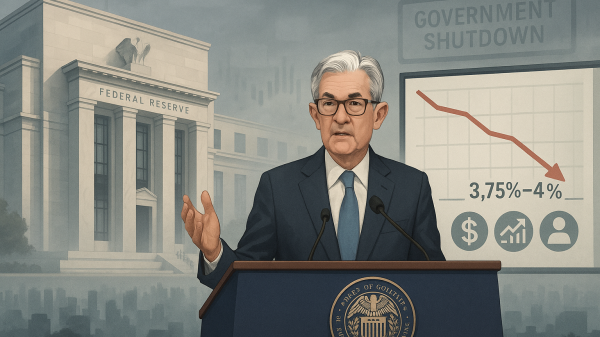Germany’s economic recovery remains fragile and could weaken further without structural reforms to boost long-term growth, the International Monetary Fund warned in its latest assessment of the country.
In an annual Article IV report released Wednesday, the fund signaled that Europe’s largest economy risks falling short of meaningful expansion unless policymakers accelerate changes at both the domestic and European Union level.
The IMF raised its near-term forecast slightly, projecting German GDP growth of 1% in 2025, up from its previous estimate in October.
Growth is expected to gradually strengthen to 1.5% by 2027.
However, the IMF cautioned that “risks to the outlook are tilted to the downside,” pointing to weak fundamentals, slowing momentum, and persistent structural challenges.
Modest growth outlook clouded by structural constraints
While Germany is expected to return to moderate growth, the IMF noted that the recovery lacks depth without targeted policy support.
The fund said increased public investment will help lift economic capacity over time, but broader reform efforts are still required to secure sustainable expansion.
“Without further bold reforms both domestically and at the EU level, Germany still faces a persistently challenging medium-term growth outlook,” the report stated.
The assessment reinforces similar caution already expressed within the country.
Chancellor Friedrich Merz’s own economic advisers recently cut next year’s growth forecast to below 1%, underscoring the risk that Germany may struggle to regain momentum after prolonged stagnation.
Earlier optimism centred on expectations that large fiscal packages could stimulate investment and productivity.
Yet structural concerns, including an aging workforce, high tax burdens, and slow industrial adaptation, have continued to weigh on confidence.
Fiscal boost seen as helpful, but spending must be targeted
One bright spot highlighted by the IMF was Merz’s landmark spending bill, introduced before he formally took office in May.
The fund said fiscal policy is positioned to provide “a welcome boost to growth,” but warned that the effectiveness of the stimulus depends heavily on how the resources are used.
The IMF recommended directing funds toward long-term investment, including infrastructure upgrades, tax reform, and strategic priorities like defense spending.
It urged Berlin to avoid “fiscally expensive and discretionary” measures, citing sector-specific tax cuts, such as the recently announced VAT reduction on restaurant meals, as examples of less productive spending.
To reinforce competitiveness, the IMF argued that Germany needs policies that ease the tax burden, support industrial modernization, and address labour-market rigidities.
The report noted that public investment and incentives for innovation could significantly enhance productivity if implemented efficiently.
Regulatory burden still a drag on productivity
Beyond fiscal policy, the IMF emphasized the need to reduce regulatory complexity, a longstanding issue for German businesses.
Excessive red tape has slowed innovation and hindered productivity growth, according to the report, and remains one of the core structural impediments to expansion.
Although the German economy is positioned for gradual improvement, the IMF concluded that achieving stronger and more durable growth will require decisive action.
The fund’s warning adds pressure on policymakers as Berlin navigates budget debates, energy transition demands, and shifting global trade conditions.
Germany now faces a critical question: whether planned fiscal support, combined with structural reform, will be robust enough to restore economic momentum — or whether the recovery risks losing steam before it fully takes hold.
The post Germany faces growth risks as IMF calls for “bold” reforms to strengthen recovery appeared first on Invezz


































